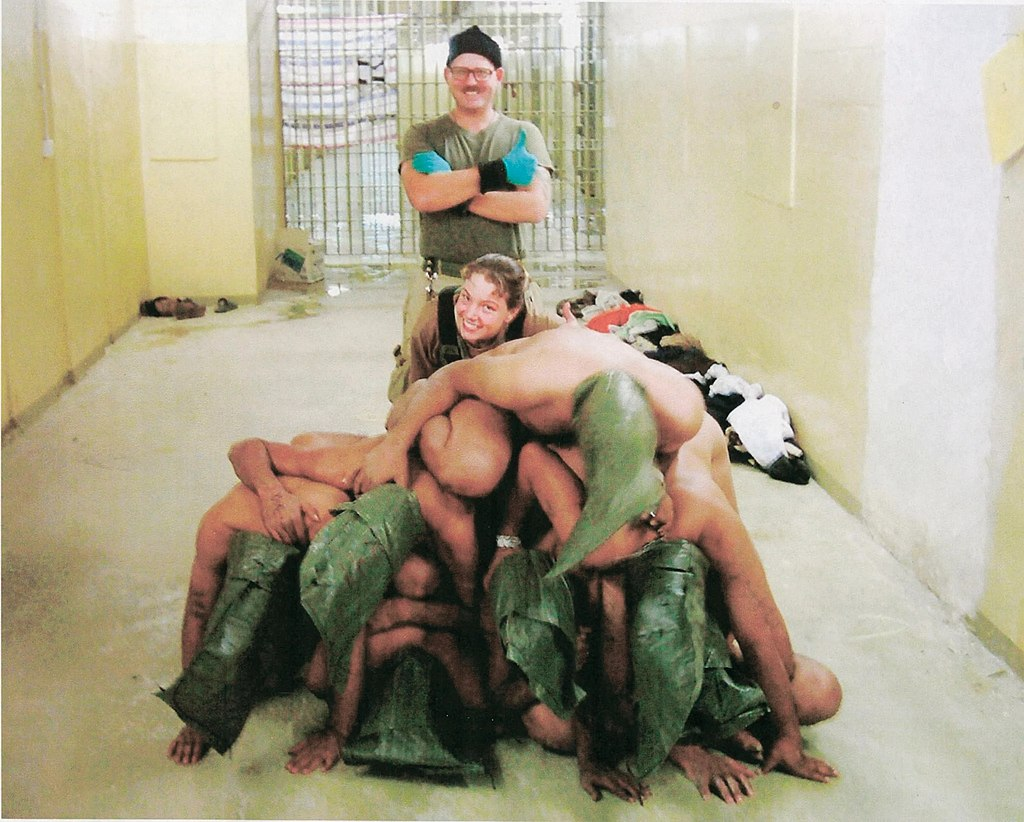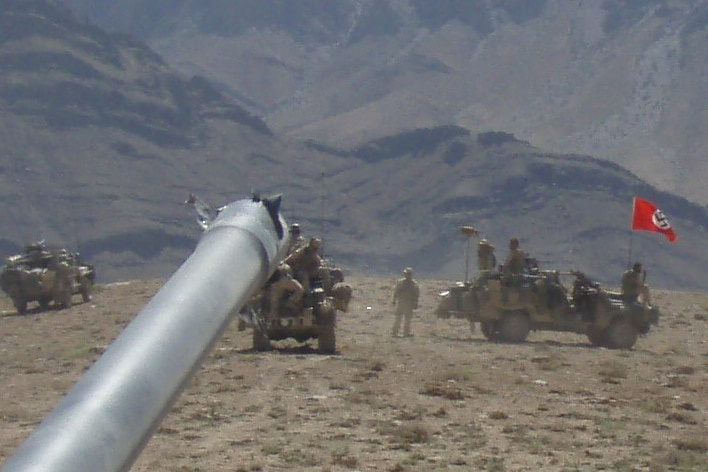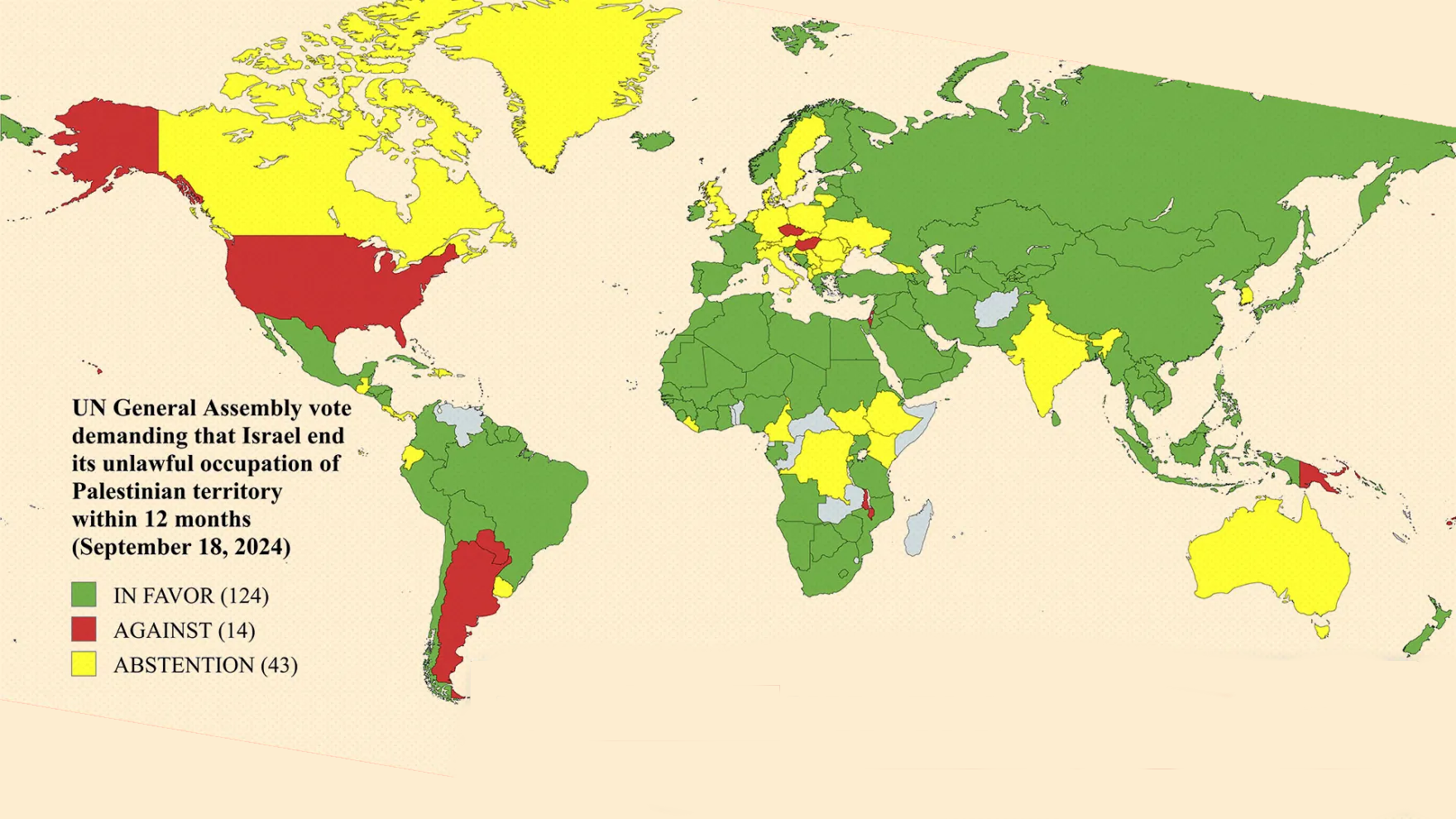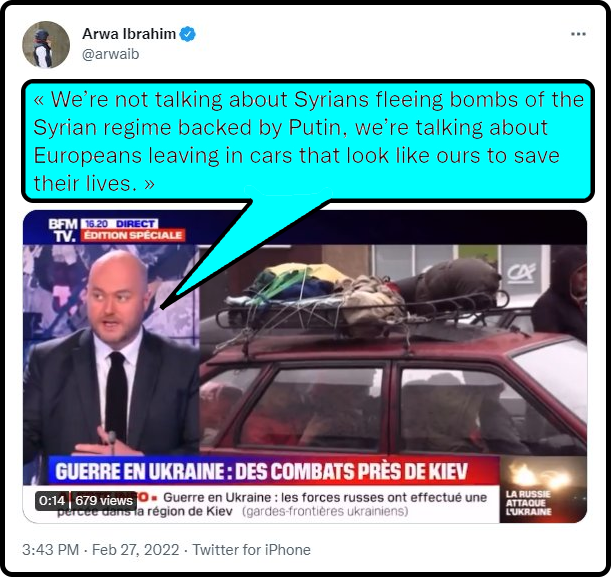TLDR: For real and imagined reasons, the West is less popular than it thinks it is and this is war is framed, by Russia, as them standing up to the West.
Russia has presented plenty of arguments for why its special military operation was legitimate:
NATO expansion to a neighboring country Russia considers its own by right. Russia is trying to return to the previous peaceful situation before Ukraine started to remove itself from Russian influence. Russia deserves respect from smaller countries.
"Nazis". Because of course Zelensky, who is of Jewish origin, is also a Nazi.
"Western domination of world affairs needs to come to an end."
"Hey, the West did this in Libya."
"It’s a battle between good and evil, in which Russia is the last powerful guardian of the good, seeking to maintain God’s Holy Laws while the decadent rest are just trying to hold a gay pride parade in Kyiv."
Now, the world is a big and diverse place. People have different worldviews, access to different source of news and different emotional affinities to different countries. Some people will just give more credence to Russia's arguments than to Western ones.
Here's a February 2023 poll, conducted in a number of countries, asking people about their opinions. Mostly covers geopolitics: trust/mistrust of Western motives and influence on world affairs, as well as democratic credentials.
In many places, Russia is still remembered as being supportive against past imperialism. Africa, a big concern in the linked article's map certainly has been exposed to Western colonialism more so than Russia's. Other countries include China (a competitor to the West) and India (which has had friendly relations with Russia in the past). You can top it off with a number of countries in South America with harder left governments.
Many people just struggle to survive and couldn't care one whit about a far off war involving Europeans. Global warming is also stressing some poor countries and quite a few rich Western basically ignore it if it brings any inconveniences to themselves.
When Covid came about, Russia donated - some - Sputnik vaccines (ditto China), the West initially kept a lot to themselves. Granted the efficacy of both Russia and China's meds might have been dubious, but...
Take something as clear and scientifically objective as Covid itself. Even in Western countries with populations having full access to unrestricted information, opinions and sentiment were all over the map. Why exactly do you expect the Russia-Ukraine war to be any different?
Heck, you even have a tribe of Americans, led by Tucker Carlson et al. who think Russia's actions are understandable.
To go back on the subject of poverty. Many people in poor countries feel rich countries (the West) aren't doing all that much. In a way, the fact that Russia hardly donates anything probably means that they are not blamed for insufficient overall aid.
This is basically a "why don't people think like I do" question, scaled up to a country level. There are numerous reasons why that would be the case, the only real surprise would be if everybody agreed.
That said, since the facts in themselves - Russian aggression against a neighbor whose territorial integrity it had guaranteed - are pretty clear cut, it might be the time for Western governments to think about how their PR towards the global South needs a bit of tuning. In the event of a potential future struggle for world influence between the West and China, best to have learned how better to communicate with the rest of the world.
any valid reasons to support Russia's invasion?
No. Whatever misbehavior the West can be accused of hardly excuses Russia's aggression in Ukraine. And it most certainly does not excuse Russia from its large scale, systemic, violations of the laws of war regarding civilians and POWs. I mostly answered the title - "Why do some people support Russia's war in Ukraine?".
p.s. about the Zelensky is really a fascist argument in comments, it hardly holds much water (the Nazi version of this argument is just laughable). Before the war started, Zelensky, primarily a Russian speaker, was considered by many as weak and too accommodating to Russia. Remember, he was better, to Russia, than the primary alternative in 2019, Poroshenko. Zelensky aside, dismissing this argument is not to whitewash Bandera and his modern followers - he wasn't "just" a nationalist. But you don't invade a country just because it has fascists and some fascist politicians - we'd all be at each others' throats, all the time.
p.p.s For a light dip into the sentiments of some Indians, a sizable slice of the Russophiles the question asks about, have a look at the Hindustan's YouTube channel. It's got 5.95M subscribers. Look at the comments. It's not all astroturfers or paid trolls - why would would anyone bother investing effort into preaching to this choir???
p.p.p.s Going to look up some more information on this, but Ukraine, remember a rather poor country itself, had only limited embassy coverage in Africa and other global South countries. Russia did quite the opposite. Not engaging with countries, while it saves much-needed cash, comes at a risk. While Ukraine might have had limited cash, disengagement was a hallmark of Trump's foreign policy.
US foreign policy really at times does seem to be designed to unnecessarily provoke Russia. For example, current military exercises with Armenia. Minor, sure. Possibly principled to assist freedom and development, motherhood and baklava? Maybe. Appropriate, in realpolitik terms, at a moment when it is desirable to have the Russian bear slink back home, by having it count the cost/benefit of getting its people killed for no good reasons other than its unjustified paranoia and hubris? By no means.
I wonder if there isn't also a "dirty laundry" effect. Consider this: Abu Ghraib, Iraq War, CIA-backed death squads in Central America... These are all parts of very public discussions, carried out in English, by people living in the perpetrator country. Anyone interested in world affairs can have a look to see what crimes were carried out, as recognized by Americans themselves. That's the nature of free speech in democracies, criticizing Western war crimes. Ask Chomsky (who has parlayed his dislike of the US into a lucrative career criticizing it, in the US).
Contrast that with countries that have limited free speech and suppress criticism of war crimes by their armed forces. To an outsider, they will look better. How much public soul-searching did Russia engage in when they razed Grozny in 1994 and 1999? Sure, they talked, a lot, about Russian military losses. What about Chechnyen (Russian citizens) civilians ones? Were Russians as assiduous in questioning their armed forces behavior in Syria as Westerners were critical of civilian casualties in Mosul, kicking out ISIS? We talk about Afghan civilian losses from 2001-2021 (NATO): 50k? Let's double that to 100k. Estimates for Afghan civilian deaths 1980 - 1989 (USSR) run from 500k to 2m. Is that the occasion for a whole lot of Russian soul-searching? Is Bucha?
Not that I am aware of, and if they were, the discussion was carried out mostly Russian, a language spoken by not that many people outside Russia.
This is not to say the West can't be massively self-righteous most of the time. That is already a core part of this answer. It is just that our misdeeds are largely part of our public record while Russia's is less easily accessible. Especially now, with their new censorship laws.



